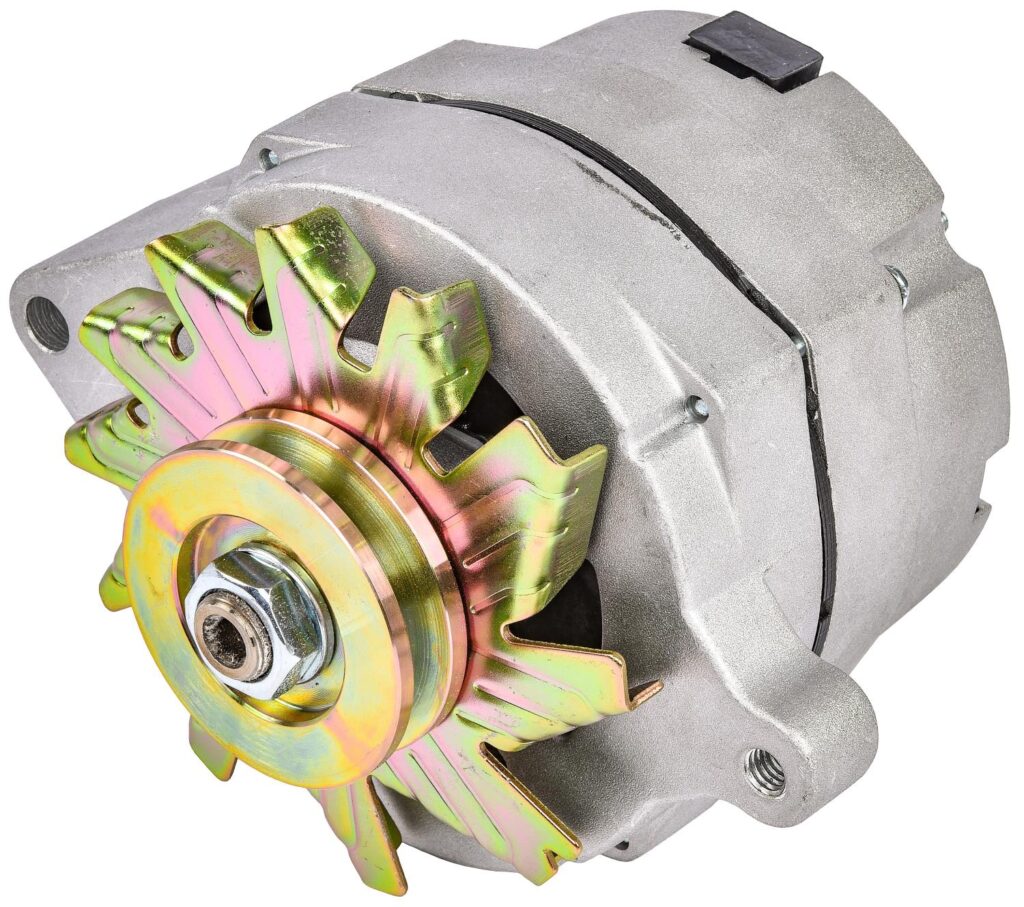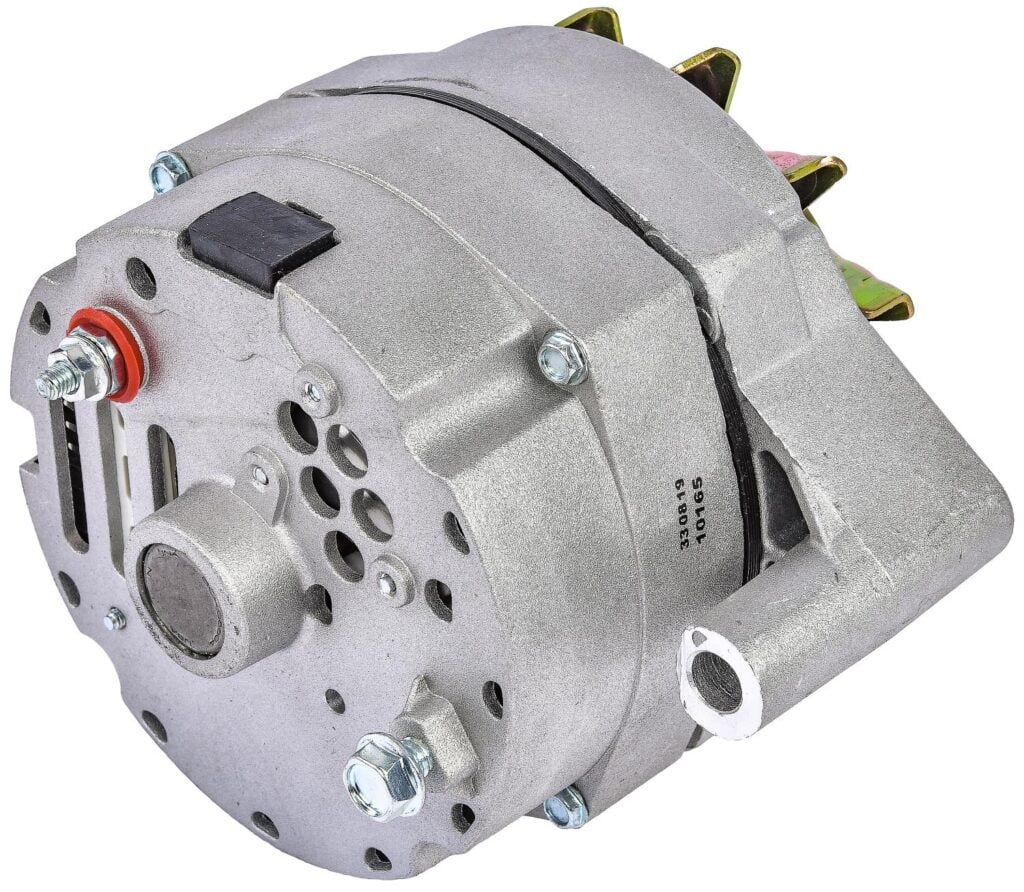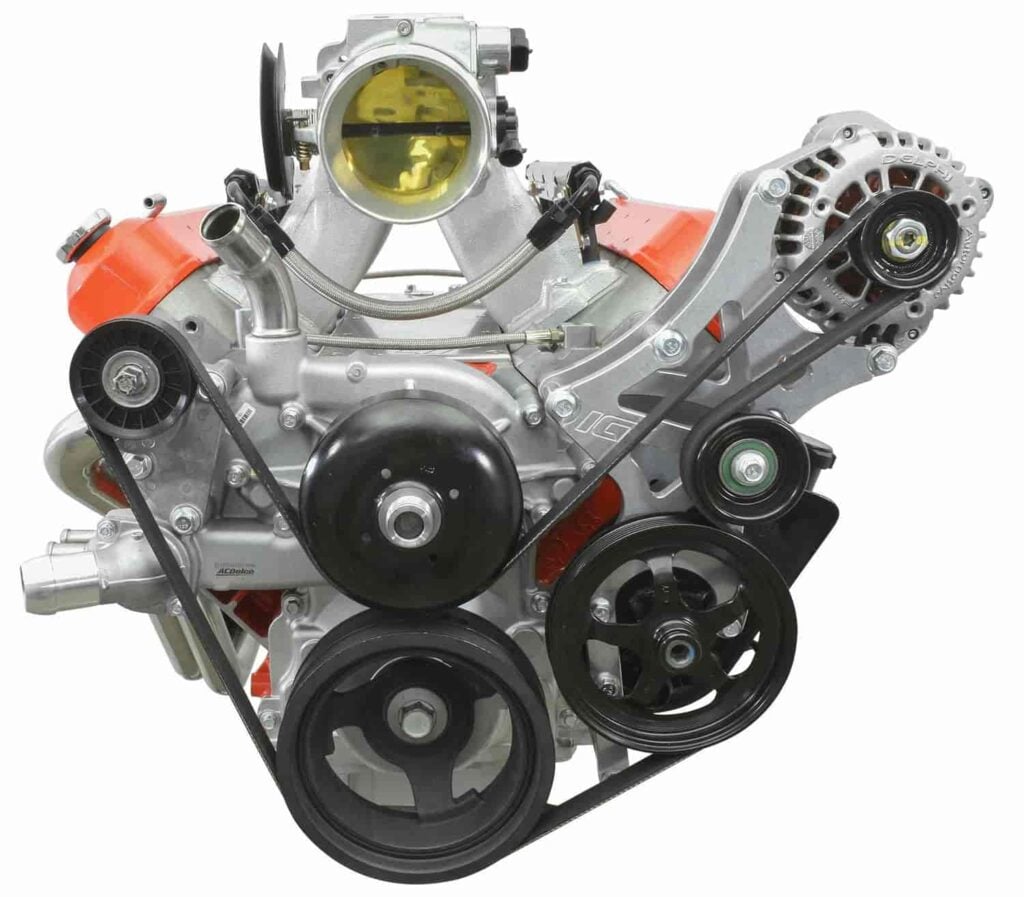Sign up now to join the JEGS email newsletter and be the first to learn about new products, special deals and e-mail only offers!



If your car's lights are flickering or seem dimmer than usual, or electrical features like power seats or windows are sluggish, you may have alternator problems.
While these particular symptoms aren't too worrisome, a bad alternator can also cause your engine to stall or keep it from starting, potentially posing a safety risk. For these reasons, if this part starts acting up, your best bet is to replace it right away.
How much is an alternator? The component usually ranges from $100 to $1,000, depending on factors like its amperage, connection type, mounting style, and more. This range doesn't include installation, which can run another $75 to $250 at a repair shop.
This guide will help narrow down the final tally by further exploring the cost to replace an alternator. But first, let's review how this part works and what it does for your car.
If you're driving a car with an internal combustion engine, then you have an alternator. This component is part of a vehicle’s charging system, alongside the battery.
While many assume a car’s battery is what powers its electrical systems continuously, in reality, the battery is primarily in charge of getting the engine started. Once running, the alternator takes over, supplying electricity to components like the headlights, sunroof, and power windows.
What's more, it also recharges the battery, ensuring it's ready for the next engine start.
The alternator works using electromagnetic induction, converting the mechanical energy from the engine’s crankshaft into electrical energy. This transfer is made possible by either an accessory belt or serpentine belt that runs off the crankshaft pulley, with the latter being the most common.
Still, like all car parts, alternators don't last forever. As these components age, they can become less efficient, potentially leading to various problems and symptoms, which we'll explore next.

Sign up now to join the JEGS email newsletter and be the first to learn about new products, special deals and e-mail only offers!

Alternators typically last anywhere from 80,000 to 150,000 miles, depending on factors like your driving habits, environment, etc. Still, you may run into issues early. Below, we’ll review the most common symptoms that suggest you need a new alternator.
While the above symptoms are commonly associated with a failing alternator, they might also indicate other vehicle issues. Be sure to consult a mechanic if you're unsure about next steps.


As mentioned earlier, alternators usually cost $100 to $1,000, a fairly large spread. The difference lies in the details, which we'll review below.
Your vehicle's specifics greatly influence how affordable its parts are, including the total alternator replacement cost. Generally, luxury cars, or less common models, have higher-priced parts due to their exclusivity.
Similarly, newer vehicles, or models with more powerful or complex engines, may require high-output “performance” alternators, which put out higher amperage, but can cost more.
An alternator's brand and standard warranty also affect its selling price. Warranties often last one year or more and reassure consumers that the part is covered for a period of time at little or no expense, whether mended or substituted.
The warranty’s duration often reflects the brand's trust in its product's durability and reliability. With this in mind, note that this assurance often comes with a modest price increase.
An alternator’s connection type and mounting style also play into its cost. Some vehicles require unique connections or unconventional mounting styles, making them more expensive.
Stock replacement alternators are designed to meet a vehicle's original electrical requirements, providing consistent and adequate amperage (usually 60-120 amps). High-output "performance" alternators deliver increased amperage (130-300), catering to cars with aftermarket electrical add-ons.
As you might have guessed, performance alternators usually come with a higher price tag vs. OEM replacements (more on this topic below).

Another possibility is that your alternator is working just fine but is struggling to keep up with any customizations you've installed, such as aftermarket performance upgrades, or enhanced lighting and audio systems.
In this case, a performance alternator is likely the perfect solution. These high-output options are designed to handle electrical loads ranging from 120 to 200 or more amps, ensuring even the most modded-up, customized vehicles have adequate voltage to function.
Generally, performance alternators cost $200 to $1,000, depending on their number of internal windings and other components and design elements.
If your vehicle remains largely unmodified and you're looking for consistency and compatibility, an OEM replacement alternator will often be the most cost-effective and straightforward choice.
For the average vehicle, an OEM replacement alternator will run $100 to $400, not including installation, which typically takes around one to two hours at roughly $75-125 per hour.
For more details on choosing the correct amperage for a modded or race vehicle, check out our in-depth guide.
Now that you have all the details, you should be fully equipped to purchase the right alternator for your vehicle.
For all your automotive needs, consider JEGS, a leading supplier of performance auto parts. Browse our full selection of performance and OEM replacement alternators today and have your order sent straight to your door.
Still have questions? Contact our team.





Leave a Reply